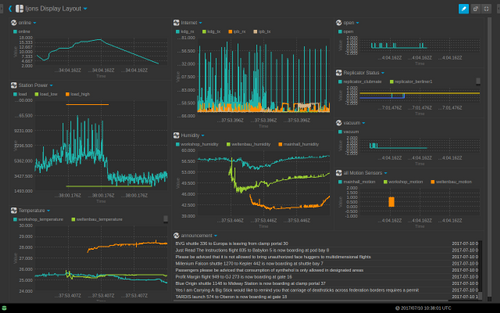
One important aspect of any Internet of Things setup is being able to collect and visualize data for analysis. Seeing trends in sensor readings over time can be useful for identifying problems, and for coming up with new ways to use the data.
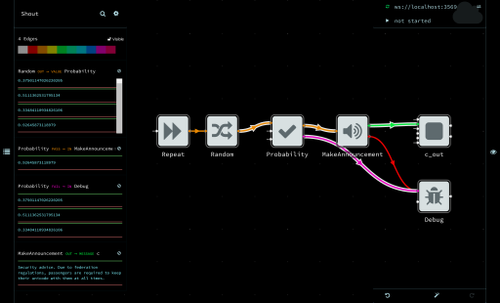
Quite a bit of time has passed since my two years of NoFlo post, and it is time to take another look at the state of the NoFlo ecosystem. To start with the basics, NoFlo is a JavaScript implementation of Flow-Based Programming:
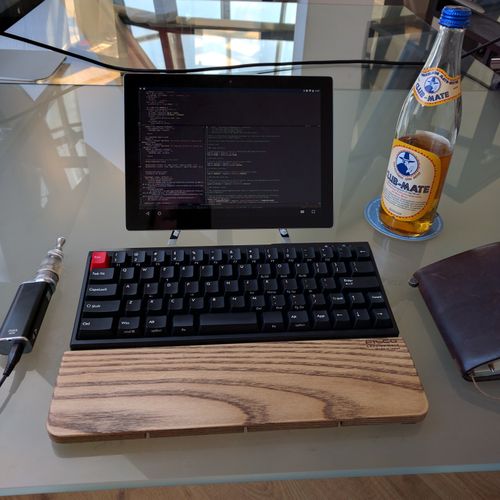
Back in 2013 I was working exclusively on an Android tablet. Then with the NoFlo Kickstarter I needed a device with a desktop browser. What followed were brief periods working on a Chromebook, on a 12” MacBook, and even an iPad Pro.

Exactly a year ago today we flew from Berlin to Tenerife to depart on a sailing trip across the Atlantic on the Finnish sail training schooner T/S Helena. The Grid had just reached 10.000 founding members, and it was time to charge batteries before the next big push towards the beta.
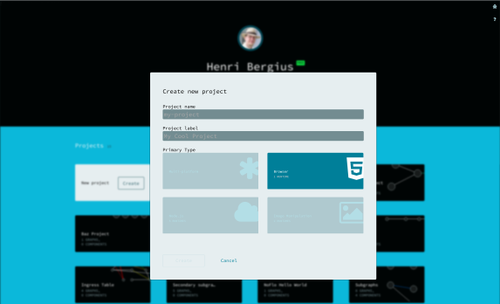
Today I’m happy to announce the public beta of the Flowhub interface for Flow-Based Programming. This is the latest step in the adventure that started with some UI sketching early last year, went through our successful Kickstarter — and now — thanks to our 1 205 backers, it is available to the public.
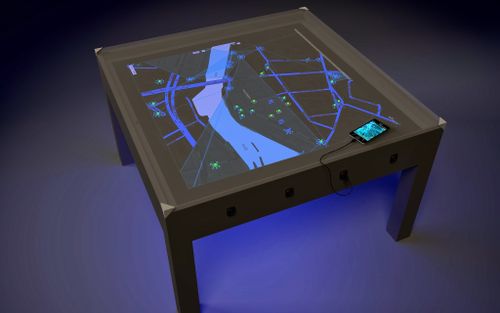
The c-base space station — a culture carbonite and a hackerspace — is the focal point of Berlin’s thriving tech scene. It is also the place where many of the city’s Ingress agents converge after an evening of hectic raiding or farming.
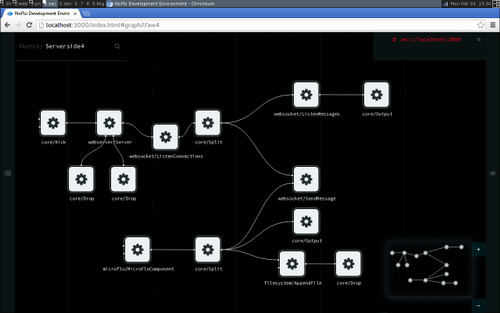
The idea of Full-Stack Development is quite popular at the moment — building things that run both the browser and the server side of web development, usually utilizing similar languages and frameworks.
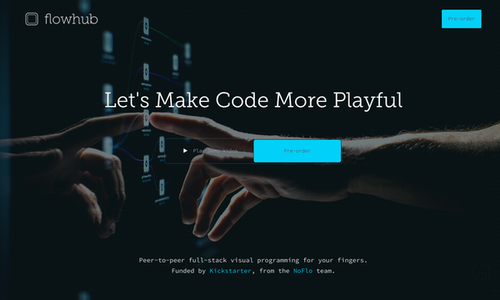
We just opened the Flowhub website for pre-orders. Flowhub is the collaborative development environment for NoFlo and other flow-based programming systems.

Bitcoin — the decentralized digital currency — has been making a lot of headlines lately. Much of this is driven by the current investment boom around it that has raised the exchange rates over the 1000 USD mark. But really, looking at Bitcoin as a medium for currency or asset speculation is a bad idea. Instead, we should see it...
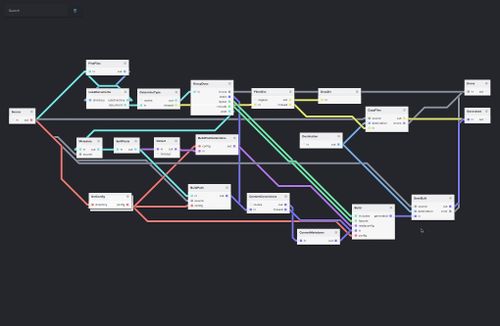
Jekyll is a delightful piece of software. A Ruby application that turns your Markdown and HTML files to a nicely constructed static website. Since the generated site is static, you can deploy and serve it from anywhere with no security or performance concerns. As a matter of fact, this site is built with Jekyll.
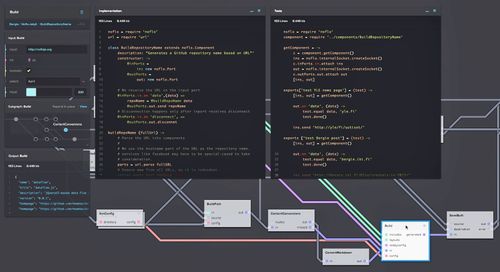
This has been a big week for NoFlo, the flow-based programming environment for JavaScript. Yesterday we released NoFlo 0.4, which added support for running flow-based programs in web browsers. And today we launched our NoFlo Development Environment effort on Kickstarter. Before continuing, make sure to watch the video!
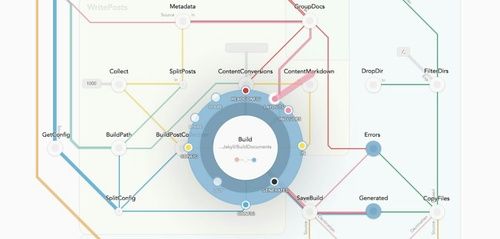
NoFlo — the flow-based programming system I started — is now two years old. I pushed the first commits to GitHub on June 5th 2011 from Hacker Dojo in Mountain View. To get us started with the story, I’ll let Wikipedia summarize:
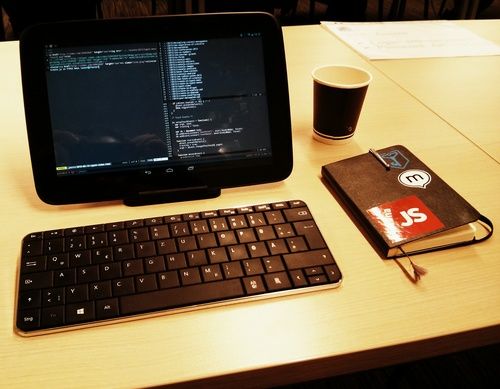
As mentioned in my post Hacker-nomad’s toolkit, 2012 edition, the lease period of my lovely — Linux-driven — 11” MacBook Air expired this month, and I had to consider what kind of gear to go with next.

As readers of this blog already know, I’ve been working on the NoFlo flow-based programming environment for JavaScript. Lately the development effort has received a large boost from both the EU-funded SmarcoS Project and client work, and so the question of a flow design UI has become even more urgent.
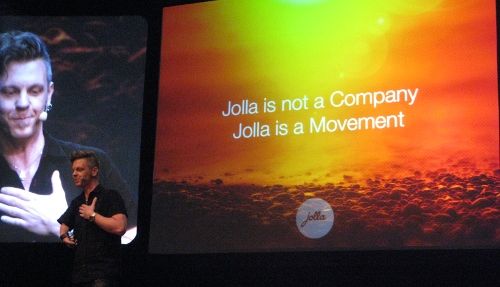
This week has been a busy one for a hacker-nomad. Weekend in Paris for the JS.everywhere conference, then on Monday a talk at the Hamburg JavaScript meetup. And now I’m in Helsinki. Slush, the conference I’m attending, is the biggest start-up event in Nordic countries. But even at that, it seems the Jolla announcements of today have been able to...
Tablet usage is growing rapidly. Ars Technica wrote about an interesting study today:
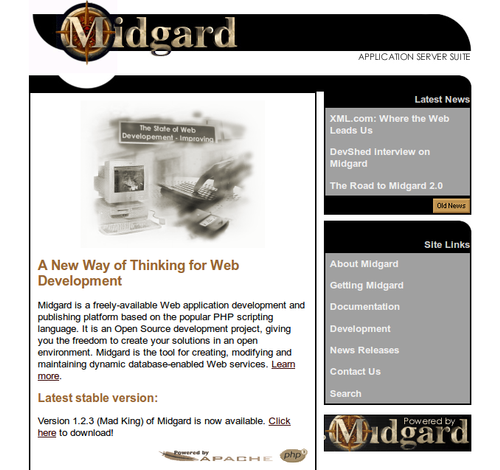
As far as open source CMSs or web frameworks go, Midgard is one of the oldest ones. We started the work on it somewhere between 1997 and 1998, and the first version was launched in May 1999. Over the years our communications and visuals have changed quite a bit, and this post aims to show some of that evolution.
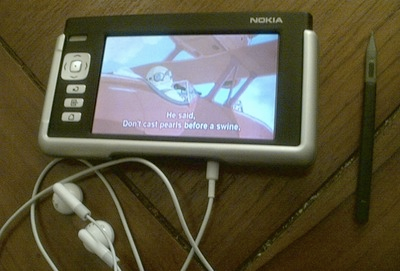
Much has been written about the emerging Post-PC era, about the new possibilities it brings, and the limitations it imposes on developer creativity.

If you’ve been following my blog, you might have noticed that lately I’ve started doing quite a lot of Node.js development alongside PHP. Based on conversations I’ve had in various conferences, I’m by far not alone in this situation - using Node.js for real-time functionality, and PHP (or Django, or Rails) for the more traditional CRUD stuff.
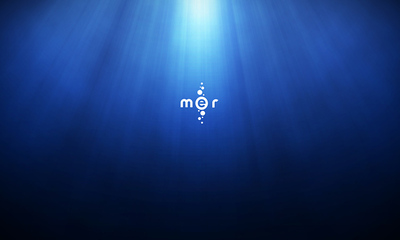
These are tough times for fans of open mobile environments. Android is less and less open, Symbian was closed again, HP stopped making webOS devices, and now Intel abandoned MeeGo to work with Samsung and operators instead. So, what is the community to do? One option is to follow the lead of the big companies, hoping that Tizen works, or...
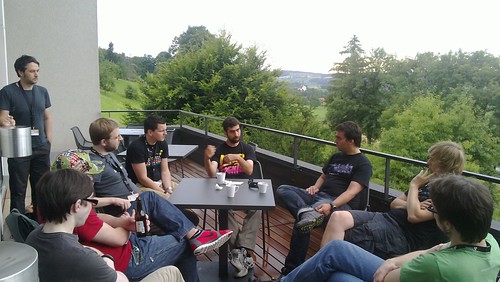
As I’ve written before, I’m concerned about the state of the PHP ecosystem. There are lots of good applications written in the language, but there is very little code sharing between different projects, mainly because of framework incompatibilities, but also because of quite a strong NIH culture.

Disclaimer: I’m a software developer with a background in Nokia’s Maemo mobile Linux ecosystem. I’ve built both software and community services for it. As a Maemo enthusiast, I’ve also been following MeeGo with interest, and am helping to build some of the project infrastructure there as well. But I do not speak with the authority of the MeeGo project, and...
There is currently quite stern discussion going on between GNOME, Canonical and KDE about collaboration on the free desktop. Angry words have been written, and I believe much of the tension arises from the situation with MeeGo. Suddenly many developers and projects feel much more marginalized than what the future looked like, pre-112. Hopefully cooler heads will prevail before the...
In the coming years another billion people will get online. They will do it with their smartphones instead of what we consider computers. And their experience will be quite different from ours when we initially started using the internet.Despite its promises, it looks like the post-PC ecosystem will be a lot more restrictive than the PC one was even in...
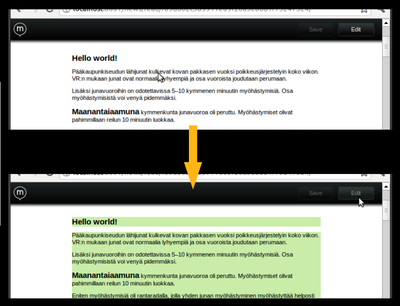
You may have noticed that quite a lot is happening in the Midgard land. Nowadays Midgard2 itself is a generic content repository that can be used for both desktop and web applications. Midgard MVC is a generic web framework for PHP5 that can be used with Midgard2 or without it. And then there is Midgard Create, the new content management...
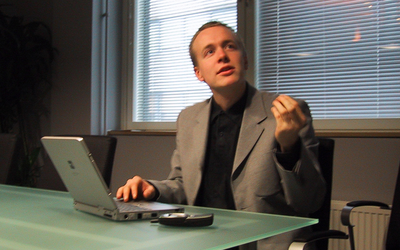
Today it is ten years since my company, Nemein, started operating. Our team had been doing the internal Midgard-based information systems at Stonesoft, but as parts of that company were being sold, our team would've been split up. So instead we started our own business with Henri Hovi and Johannes Hentunen, with the idea that our Midgard expertise would be...
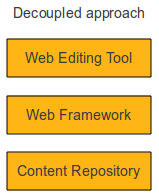
Traditional content management systems are monolithic beasts. Just to make your website editable you need to accept the web framework imposed by the system, the templating engine used by the system, and the editing tools used by the system. Want to have a better user interface? Be prepared to rewrite your whole website, and to the pain of having to...
noweb.php is a PHP implementation of the tool needed for literate programming. Wikipedia says the following about literate programming:
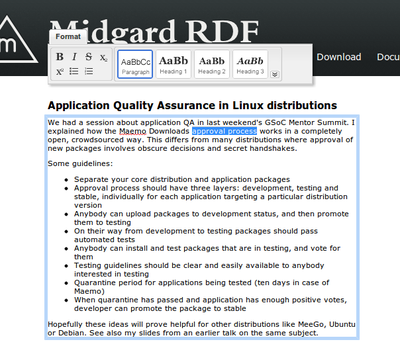
As part of the IKS project we're working on semantic web editing. One area there is using RDFa to actually make pages editable. RDFa is a way to embed semantic information to regular HTML pages, and is already supported by some search engines, making this also a way of doing SEO. But in addition to telling search engines what the...
Both companies and public administration are starting to understand the benefits of free software: reducing vendor lock-in, possibility to continue development of a project after a vendor has gone out of business or lost interest, and in general enjoying the four freedoms. But unfortunately much of this understanding has been limited to the context of licenses. In reality, licenses are...
Joint post of Henri Bergius and Michael Marth cross-posted here and here. Web Content Repositories are more than just plain old relational databases. In fact, the requirements that arise when managing web content have led to a class of content repository implementations that are comparable on a conceptual level. During the IKS community workshop in Rome we got together to...
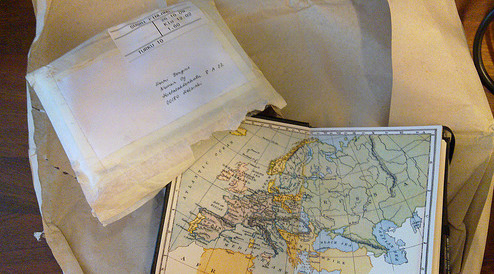
When returning from lunch today I found a package on my office desk. The handwriting on the envelope looked familiar from pictures I had seen on Qaiku before, so it was clear: I had received my own mystery book: Mystery books have been received by many prominent Qaiku members before. They are beautifully handcrafted notebooks personalized for the recipient, often...

Yesterday in GCDS there was a session about personal passions. First Jono Bacon gave a talk about the Burnout Cycle, and then various community members talked about what they do outside the sphere of hacking: running, cooking, building experimental airplanes and so forth. I gave a quick talk about adventure motorcycling, speaking about my 2004 trip around the Black Sea,...

Some friends of mine founded the Fat Catherine Sisterhood, an all-female Medieval cannon association. On Monday I got to go to the artillery range with them. Here are some pictures: You can also see a shot on YouTube. While being a light 15th Century field cannon, the Fat Catherine is with the modern times: it microblogs actively on the Qaiku...
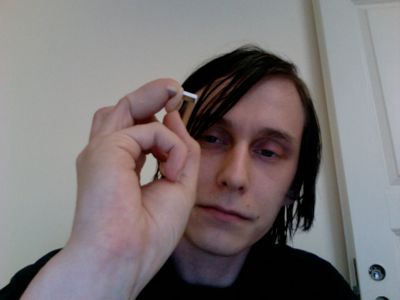
Yanko Design's You-SB concept: Jerry's real prosthetic USB finger storage: The story behind this is that Jerry had a motorcycle accident last May and lost a finger. When the doctor working on the artificial finger heard he is a hacker, the immediate suggestion was to embed a USB "finger drive" to the design. Now he carries a Billix Linux distribution...
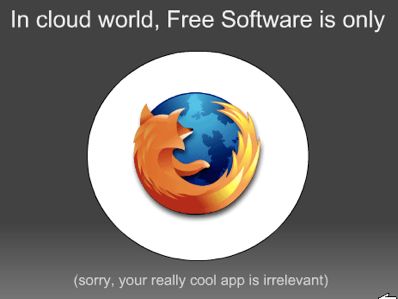
Benjamin Otte is asking on Planet GNOME why the GNOME desktop doesn't do more to integrate with the cloud. He reasons that: ...GNOME developers are not “web-enabled”. We’re a bit like Microsoft in the early 90s: We focus on the local computer and ignore the internet. which, to my experience is somewhat true. I went to GUADEC for the first...
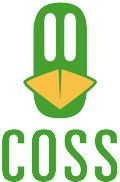
Prompted by a recent COSS news release, I thought to write about two Summer of Code success stories: In addition to Google's Summer of Code, the Finnish Centre for Open Source Solutions (COSS) runs a localized version called Kesäkoodi. One of this year's projects was adding 3G configuration support for the GNOME Network Manager. This feature made it to Ubuntu...
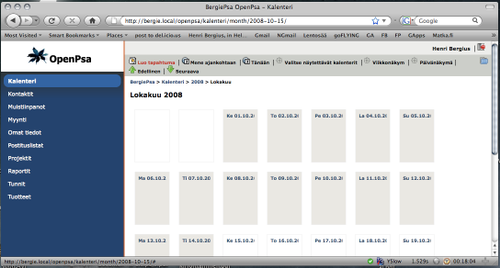
In the recent OpenMind conference we were discussing how open source projects simply don't die as long as there is an interested user community: Even if the original company or individual who built the application stops working on it, somebody will always rise and start maintaining it. Last few weeks have been a great example of this. Nemein is the...
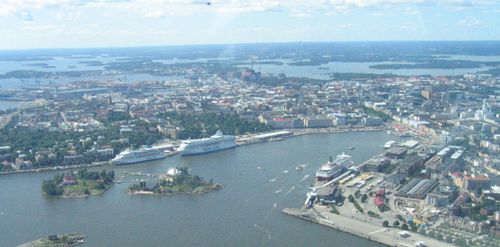
The latest issue of Monocle just dropped in my mailbox. The cover story this time is quality of life in various global cities. Helsinki did quite well, being 5th on the list. Defects listed with the city included shops being closed on Sundays and low immigration levels. From my view the city is doing many things right, including increasing rail...
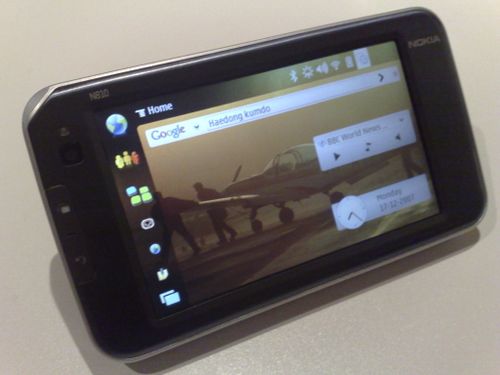
And I’m not talking about vodka this time, but instead about the latest internet tablet from Nokia, the N810. I’ve now had the device for some weeks, and it has really started to replace the laptop in many situations.
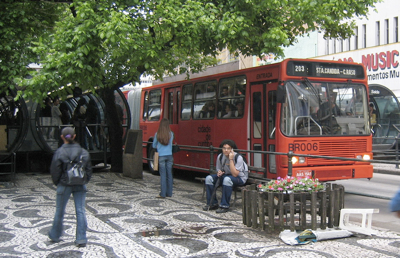
Public transport is efficient, cheap and quite green, which is why I’ve been very happy about new services hitting Helsinki Public Transport, like WiFi connectivity, and of the fact that nowadays it is possibly to wait for Espooi buses comfortably inside and underground. However, having used public transport in dozens of cities and countries, I’d say the biggest hindrance to...
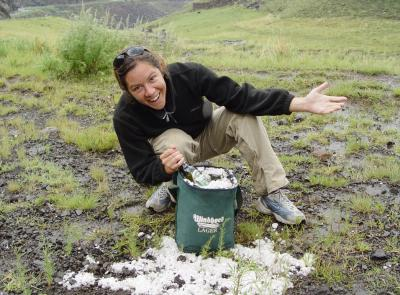
I’m going to Cape Town next week to work on a project coordinated by the City of Tampere. The trip will be a welcome diversion from the current -22°C weather here in Finland.

After the starter engine of my Triumph Legend signed off the contract last week, I’ve been stranded without a working motorcycle. As most of the days it has been snowing heavily, this hasn’t been much of a problem. However, I thought it would be time to do something. As the bike dealership didn’t seem much concerned about the problem, I...
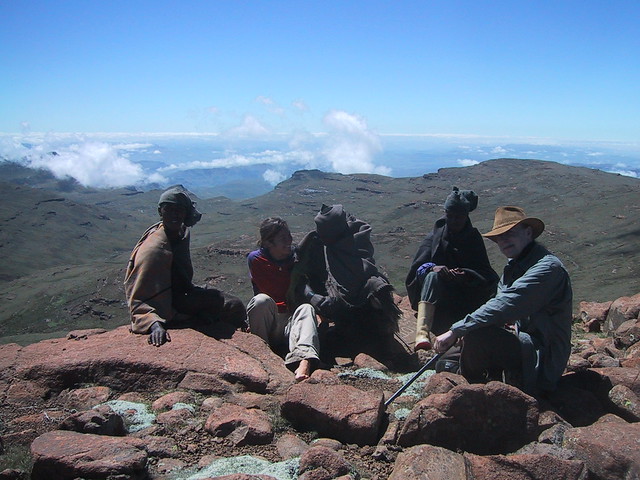
The evening around the fire was amazing. The fire circle is located on a good vantage point on the hill, with view opening across the small nature preservation area to the west and Pretorian suburb to the south.




































